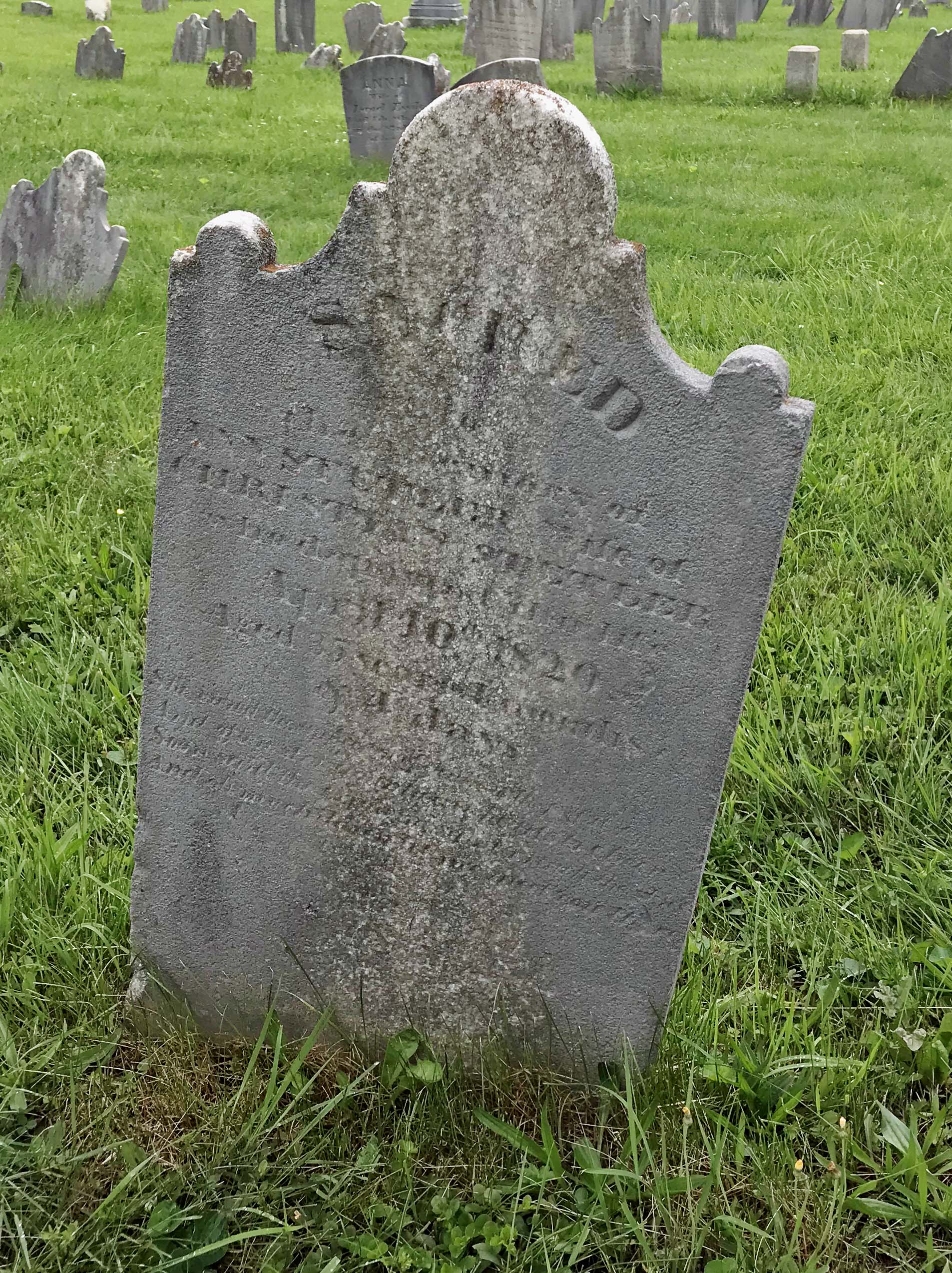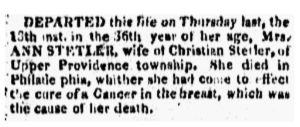
I was astonished when I saw a newspaper article from the early 1800s about Rod’s 5th great grandmother, Ann (McGinley) Stetler, having breast cancer. The surprise wasn’t that she had breast cancer, but that it was mentioned in the newspaper.

Why the Surprise?
My surprise came from the fact that my Grandma McCracken would never talk about breast cancer in any group. She might quietly talk about it with a friend or sibling. However, she would never speak of it in mixed company or when younger folks were around. And, neither of my grandmothers would have included it in an obituary. If they mentioned the cause of death, they would have simply said that the person died of cancer. Saying “breast” was considered too risqué or too personal.
The Situation
Ann McGinley was born in 1784 in Philadelphia, Pennsylvania. She was the daughter of John and Margaret (Hurrie) McGinley. Ann grew up in Philadelphia, where her father was a blacksmith. Her maternal grandfather, who had died before her birth, was the famous ringer of the Liberty Bell. During her childhood, her mother’s sister’s husband Joseph Fry worked at the State House (Independence Hall), taking over after her grandfather died. Since the Fry family lived in the State House, Ann would have gone to the famous building to visit her Aunt Martha’s family.
Ann married Christian Stetler and they lived near Trappe, Montgomery, Pennsylvania. Ann and Christian became the parents to at least eight children over a span of about fifteen years before their life took a turn.
 Cancer
Cancer
Ann developed breast cancer and went to Philadelphia for treatment. It is unknown exactly what all treatments were sought, but she ultimately underwent a double mastectomy. This also surprised me as I was unaware that they could do that surgery in the early 1800s. I found that they had been removing tumors for a very long time and had even attempted mastectomies for multiple centuries. However, the process prior to the 1800s was very painful with a very high mortality rate.
In the first half of the 1800s, the mortality rate from the surgery dropped to 10%. The cancer generally reoccurred, but in some cases could buy the patient more years of life. Unfortunately, Ann did not get several years. She was still healing from the surgery when the cancer came back.
Fortunately, the detection, treatment, and surgical techniques for breast cancer has improved greatly over the past 200 years. If Ann were living today and developed the same disease, she would have had a much greater chance of a positive outcome.
It was said that she had suffered greatly for the last six months of her life. She died in Philadelphia April 13, 1820. Despite being admitted in December 1819 to what is now called Old Pine Street Presbyterian Church, which her maternal grandfather had been an early member and sexton, Ann was buried in the Augustus Lutheran Church Graveyard in Trappe, Montgomery, Pennsylvania.
Sadly, only eleven months later Christian joined Ann in the hereafter, leaving eight orphan children. The family’s property was apparently sold and the children were dispersed. This led their son John McGinley Stetler, who was only four when his mother died to write the book (booklet) “A Poor Orphan Boy.”
 Cancer
Cancer